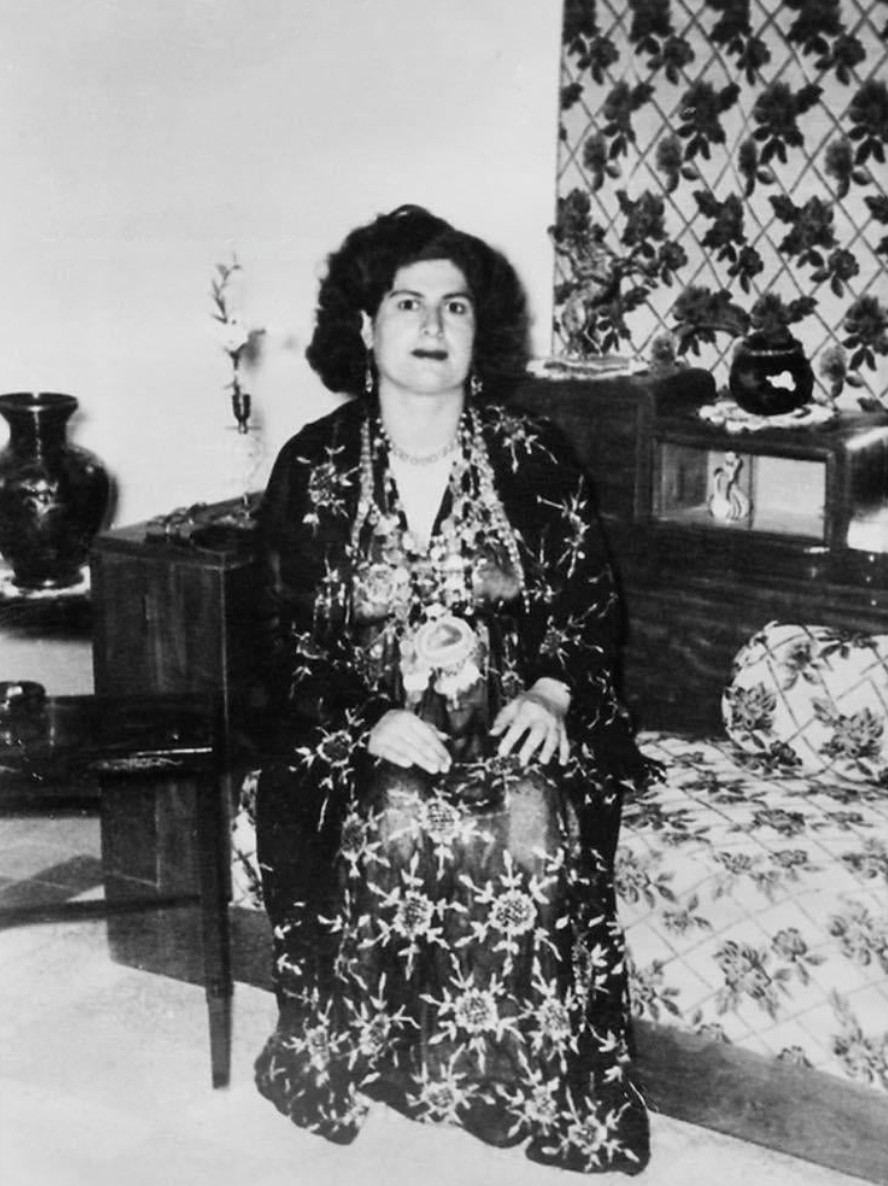The number of Christians in Iraq has been in decline for decades. Facing bleak futures and dim prospects, many have seen emigration as the only option. Today, their survival hangs by a thread. Waves of violence, marginalization, religious intolerance, forced migration, and targeted persecution have left them scattered, wounded, and questioning whether they still belong.
Since 2003, and especially after the rise of ISIS in 2014, Iraq’s Christian community has faced what many call a slow-motion genocide. From once numbering around 1.6 million, fewer than 300,000 remain inside Iraq, and most of these have found refuge in the Kurdistan Region. The rest have left, joining a global diaspora carrying their grief in silence.
Statistics indicate that nearly 80% of Iraqi Christians have fled since 2003, leaving behind looted homes, desecrated churches, and a vanishing legacy.
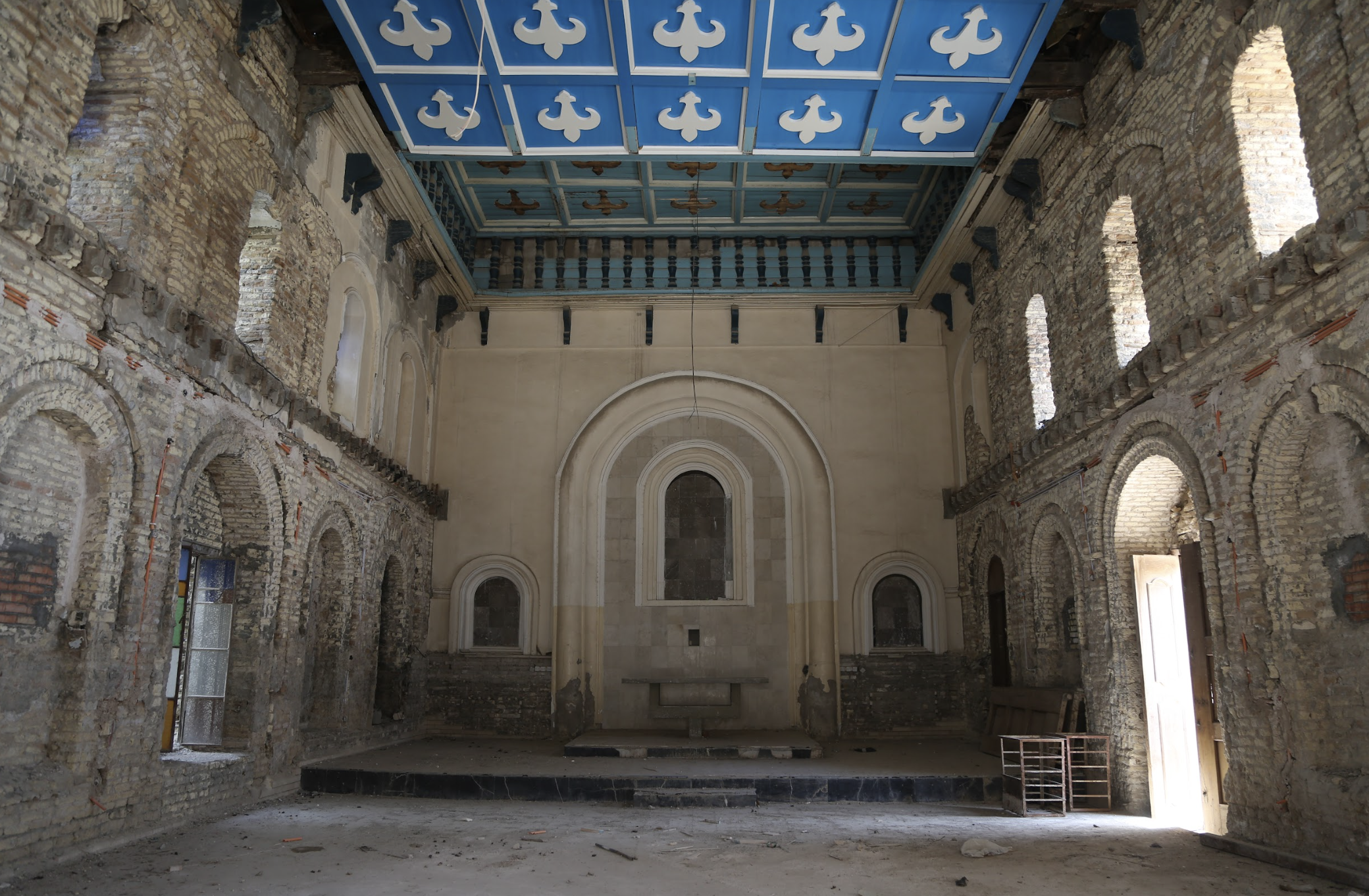
Chaldean Church of Mar Thoma, Basra, built in 1880
A story of survival
“I would leave Iraq tomorrow if I had the money,” says Khalida Elias Dawood, 53, from Qaraqosh, once the largest Christian town in Nineveh Governorate. Her words are heavy, spoken as she flips through photos of her two sisters, fellow victims of ISIS’ brutality, on her cellphone.
In August 2014, just days after ISIS overran her town, Khalida and her sisters were stopped on their way to visit an uncle. ISIS fighters gave them three choices: pay a tax, convert to Islam, or be killed. They were taken captive instead.
For three months, the sisters endured beatings, humiliation, and sexual slavery. Khalida and one sister eventually escaped with the help of relatives, hiding in a car that carried them through Mosul and into Samarra, where they were sheltered by a local Muslim for three days before making their way to Baghdad.
But the third sister wasn’t so fortunate. She spent three years enslaved in Raqqa, Syria, before being released. Today, she lives in Australia, but trauma follows her like a shadow. “They destroyed our lives and separated us forever,” Khalida says quietly. “I will never return to Qaraqosh. The danger is still there.”
For many, their houses are no longer homes. They seek alternatives, anywhere in the world. This starkly illustrates the Iraqi government’s failure to protect ethnic and religious minorities. Just like the Jews who left Iraq long ago, Christians could be the next religious group on the verge of disappearance.
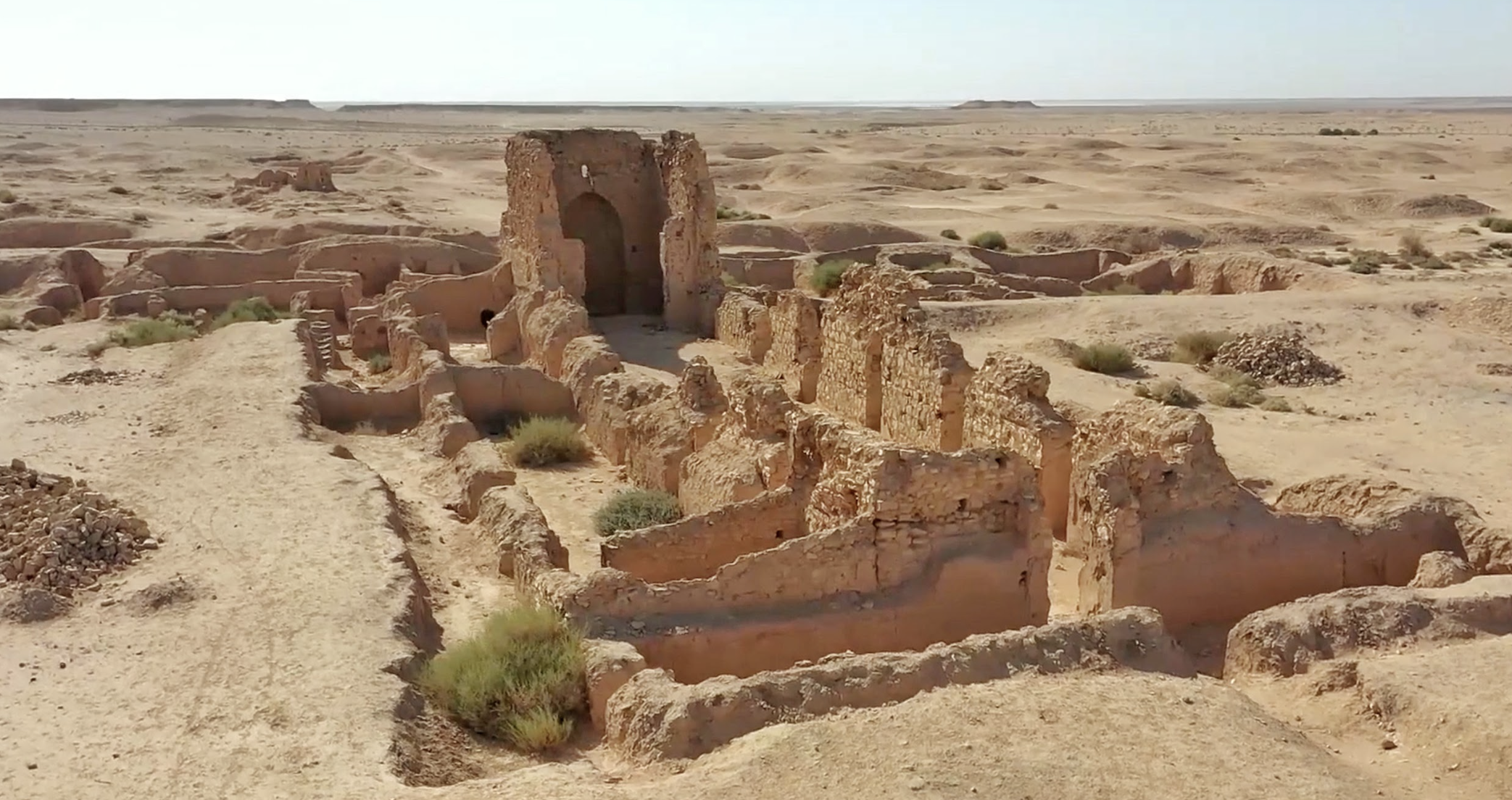
Ruins of al-Aqiser Church, built in the 5th century and considered the oldest Eastern Christian church.
Disappearing slowly
The Christian presence in Iraq stretches back 19 centuries. But this once-vibrant community, which has built monasteries, schools, and entire neighborhoods, is now at risk of extinction.
The first Iraqi census in 1920 counted around 78,000 Christians, roughly 2.7% of the total population. By 2003, estimates put their number at 1.6 million. Today, credible estimates range from 187,000 to 400,000.
The U.S. Commission on International Religious Freedom reports that Christians now make up fewer than 1% of Iraqis, while the watchdog group Open Doors International ranks Iraq 17th among the world’s worst violators of Christian rights.
Meanwhile, Iraqi human rights groups document widespread land seizures, with more than 30,000 cases of confiscated homes, farms, and properties that once belonged to Christian families. Non-government organizations like the Shlomo Organization for Documentation (SOD) also recorded 1,383 killings of Christians between 2003 and 2017, including 14 priests, and 251 kidnappings.
“This is nothing less than cultural genocide,” says Faris Yousif Jajo, head of the SOD. “Entire towns have emptied. Mosul is almost without Christians.” In the Nineveh Plains, where they once formed a majority, nearly 50% of the population has left for good.
Khalid Albert, General Director of Christian Affairs for the Kurdistan Regional Government’s (KRG) Ministry of Endowments and Religious Affairs, estimates the number of remaining Christians at between 350,000 and 400,000, with 250,000-300,000 living within the region.
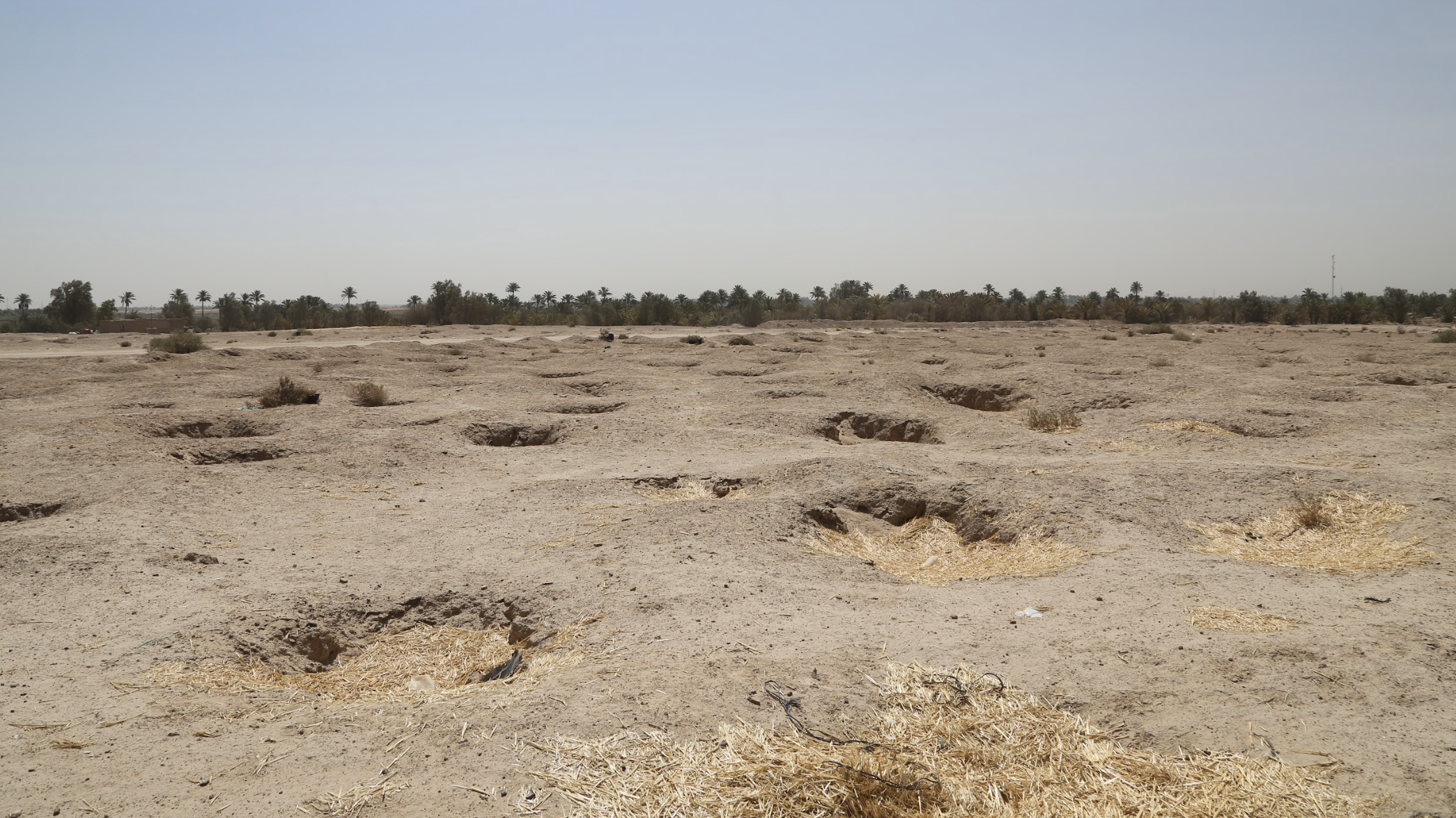
Umm Khashm, Iraq's ancient Christian burial ground in Najaf
“Over the past three decades, the Kurdistan Region has remained a haven for the approximately 300,000 Christians displaced from various parts of Iraq, especially after ISIS occupied Nineveh. Due to the threats posed by extremist groups and militias, many prefer to remain in the region,” Albert said.
Pascale Esho Warda, Director of the Hammurabi Human Rights Organization, claims that “between 400,000 and 450,000 Christians remain.”
Warda, Iraq’s first female minister since 2003 and the target of four assassination attempts, criticizes the lack of government initiatives to support the survival of Christians in Iraq, asserting that “arbitrary laws, prevailing mentalities, customs, and policies are among the most prominent obstacles facing Iraqi Christians.
“The condescending view of communities, especially of Christians, and the dominance of the majority culture without recognizing the importance of this community is a real disaster,” she said.
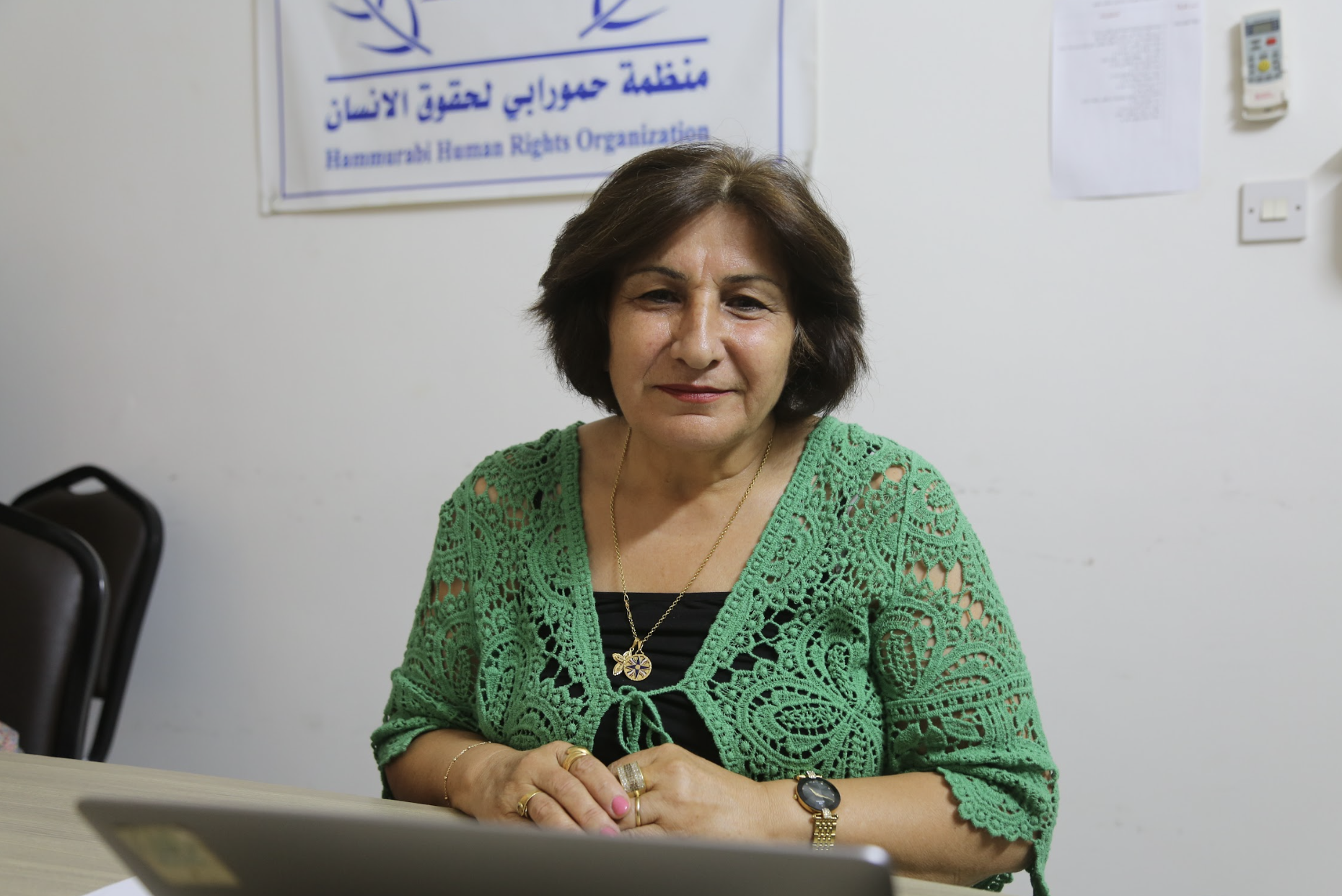
Pascale Esho Warda, Director of the Hammurabi Human Rights Organization
Symbolism of Number 7
Numbers tell a brutal story for Iraqi Christians, who have endured wave after wave of persecution throughout history.
The number seven has multiple connotations in the Abrahamic religions. Christians believe that Jesus Christ spoke seven words on the cross before his death (between 30 and 33 AD), which are mentioned in the four Gospels. These are scenes that embody the meaning of sacrifice. In Islam, the number seven also has symbolic meaning, as it refers to the “seven gates of hell.”
Over the past century, since the founding of the Iraqi state, Christians have endured repeated campaigns of displacement and extermination, so relentless that it seemed as if the seven gates of hell had opened for them in this world. The most prominent of these tragedies can be summarized as follows:
1. Simel Massacre (1933): Iraqi troops killed between 600 and 3,000 Christians in Duhok and Nineveh.
2. Surya Massacre (1969): 38 Christians were killed and 22 injured when the Iraqi army attacked the village of Surya.
3. Anfal Campaign (1988): 152 Christians were buried alive in mass graves during the Anfal Massacres (February 22-September 6, 1988), which claimed the lives of more than 182,000 citizens in Kurdistan, most of them Kurds.
4. Economic Blockade (1990-2003): The international blockade imposed on Iraq after its invasion of Kuwait led to a new wave of Christian emigration.
5. Faith Campaign (1993-2003): The regime sought to “Islamize” Iraq’s multi-religious and multi-sectarian society by imposing Sharia law and fostering the rise of Islamist movements, forcing thousands of Christians to emigrate.
6. Post-2003: The repercussions of the U.S. invasion, the Shi’a-Sunni civil war (2006-2008), and other events led to the deaths of 1,173 Christians and the emigration of thousands, according to statistics from the SOD.
“The church massacre of 2010 was like the synagogue bombings of Baghdad in 1951,” says Saad Saloum, a leading researcher on religious diversity. “It marked the beginning of an exodus that emptied entire neighborhoods.”
When foundations cry out
Persecution has not spared Iraq’s Christian heritage. Ancient churches and monasteries have been bombed, looted, or simply abandoned.
The al-Aqiser Church in Karbala, considered one of the oldest in the Middle East, has crumbled into ruins. In Najaf, the Umm Khashm Cemetery, one of the world’s largest Christian burial sites dating back to the 4th century, has been left unprotected.
Basra, once home to thousands of Christians, has seen its churches shuttered or reduced to rubble. “Our people want to live with dignity, but life here has become impossible,” says Bishop Habib al-Naufali. “In 2003, we had 4,000 Christians in Basra. Today, barely 1,100 remain.”
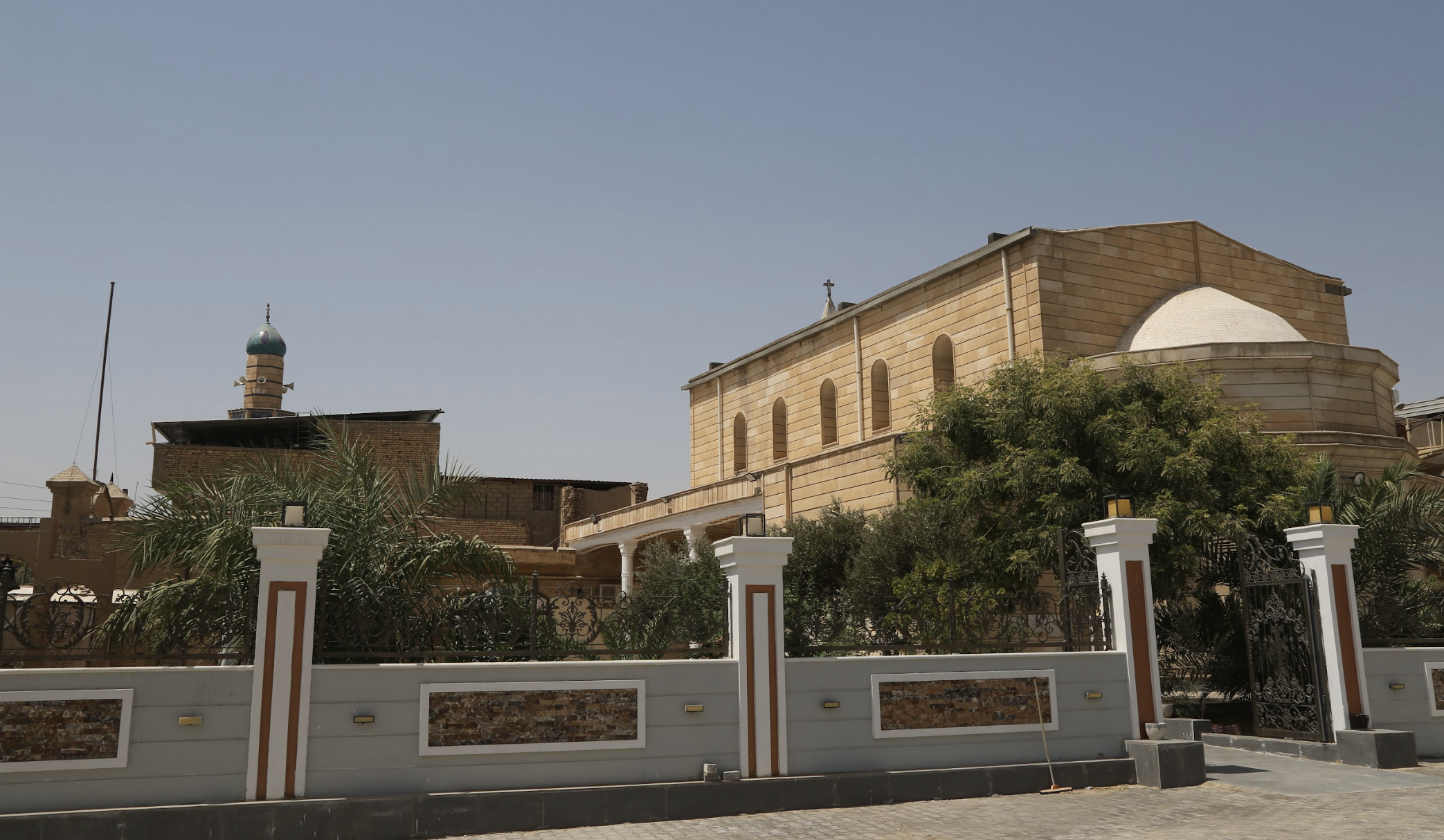
Kurdistan: The last haven
Amid the darkness, the Kurdistan Region has offered refuge, with nearly 80% of Iraq’s Christians now living there and enjoying security and freedom of worship.
The town of Ankawa, in Erbil, has become a Christian hub, often called the “Vatican of Iraq.” With more than 150 churches and active schools, the Kurdistan Region is home to both Iraqi Christians and refugees from Syria and Lebanon. “Here, families feel safer,” says Ryan Brown, CEO of international organization Open Doors. “They find work, education, and a sense of belonging they can’t find elsewhere.”
The KRG has reserved parliamentary seats for minorities, introduced laws protecting property rights, and established directorates for interfaith coexistence.
Open Doors noted that Kurdistan represents the most stable and welcoming region for Christians. “It’s more stable and safer,” said Brown. “Families find more job opportunities and feel more protected. Most of the Christians who fled Mosul and the Nineveh Plains in 2014 sought refuge here.”
But the region has not been immune to challenges. Over the past three decades, it has been affected by the conflict between the Turkish army and the Kurdistan Workers’ Party (PKK), which has negatively impacted Christian villages in the border areas.
According to Kamran Osman, a member of the Community Peacemakers Teams, 41 Christian villages have been affected by the conflict, displacing more than 3,000 people, 70% of whom have emigrated abroad.
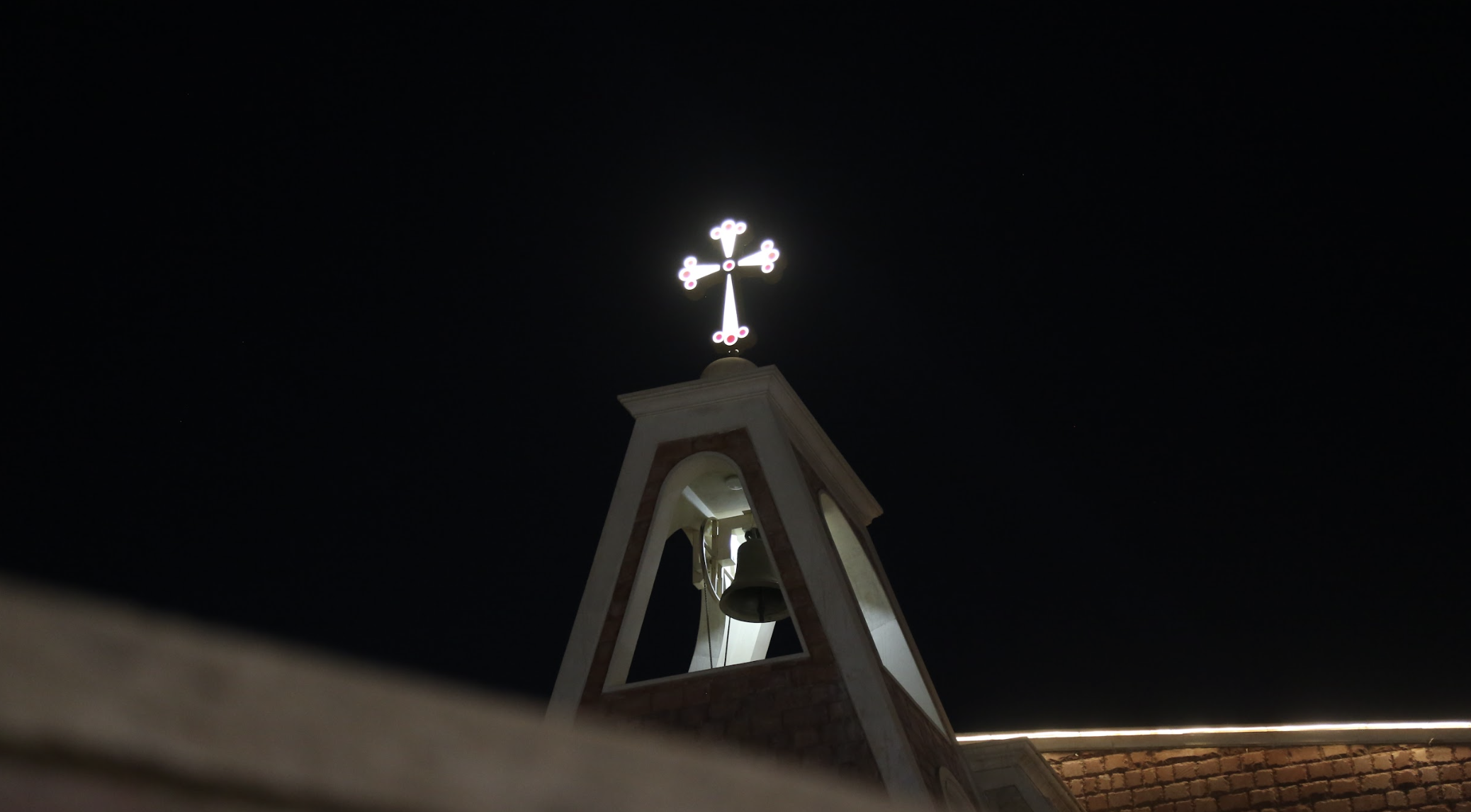
The cross and the bell of Mar Youssef Cathedral in Ankawa, Erbil
The future? Only uncertainty
The numbers tell a darker, bigger picture: from 1.6 million Iraqi Christians to perhaps under 300,000 in just two decades. For some, Kurdistan is a last refuge; for others, emigration is the only option.
“Emptying Iraq of its essential components is turning the country into a large population bloc of Shiites, Sunnis, and Kurds,” says Saad Saloum, warning that this could lead to “societal divisions and the tearing apart of the country’s identity and the bonds between its components.”
The call to discourage Christians from leaving Iraq is not new. In March 2003, just days before the US-led invasion of Iraq, Pope John Paul II made an appeal urging Iraqi Christians to remain steadfast in their ancestral homeland, warning that emigration would weaken an ancient community rooted in Mesopotamia since the earliest centuries of Christianity. The call was renewed in 2021 during Pope Francis’s historic visit to Iraq and the Kurdistan Region.
As Khalida, the survivor from Qaraqosh, looks at her children, she admits she no longer sees a future in her homeland.
“We love Iraq,” she says softly, “but Iraq does not love us back.”
Hemn Baban Rahim is a Kurdish journalist who has worked for a number of local and international media institutions
